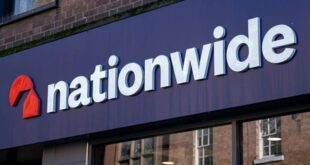The prospect of Jonathan Reynolds extracting a great trade deal for Britain from the White House fills one with gloom.
The only decisive words to come from the underwhelming Business Secretary so far are to suggest that the Czech Sphinx Daniel Kretinsky, who’s wealth is largely derived from a gas pipeline with the Kremlin, is a ‘legitimate business’ person.
Reynolds went on to cheerily declare that the £3.6billion bid for the owner of the Royal Mail could go ahead because he had ‘received legally binding commitments’ from Kretinsky to secure the long-term future. Pledges made in the heat of takeovers are easily undone by changed economic conditions.
Kretinsky’s debt-fuelled bid for the Royal Mail, largely financed by overseas banks, will leave the postal service with £5billion or so of high interest rate loans on its books. The deal will leave the national postal service totally exposed to market conditions, at time when bond yields across the globe are elevated. That will make a mockery of pledges to invest and keep the workforce intact.
The debt-fuelled mess at Asda and the ongoing crisis at Thames Water provide ample evidence of how quickly highly leveraged deals implode.
Reynolds is making a colossal mistake by ignoring the financing of the deal.
Political apparatchik: Despite holding the grandiose title of Secretary of State for Business and Trade, there is nothing on the Reynolds’ CV to suggest serious commercial experience
Despite holding the grandiose title of Secretary of State for Business and Trade, there is nothing on the Reynolds’ CV to suggest serious commercial experience. He is a political apparatchik who should be nowhere near a complex job so critical to Labour’s growth mission.
In a BBC interview in Davos, Reynolds confidently asserted that Britain should be spared President Trump’s tariff assault because the country doesn’t run a deficit on its goods trade with the United States.
‘I think we have an argument to engage with,’ Reynolds says. He is strictly correct. In the four quarters to the end of June 2024, according to data from his own department, the UK sold £60.4billion of goods to the US and imported £57.9billion. That might be considered a rounding error when compared to the whopping deficits the US run with China, Japan, and Germany.
What the UK does have, which might catch the eye of Trump’s team, is a huge surplus in professional and financial services. These fall outside traditional merchandise trade deals. But to think these invisible surpluses could be ignored, in any attempt by the UK to wriggle out of physical tariffs, is barmy.
Reynolds ought to consider who in Washington he will be dealing with. The American Treasury Secretary Scott Bessent, who supports tariffs, is a colossus of finance. He already has an incident of Britain’s economic vulnerability as a notch on his belt. Bessent acted for his then boss George Soros in the speculation against sterling in 1992. The UK was ejected from the exchange rate mechanism (precursor of the eurozone) and the Bank of England’s currency reserves depleted.
Jamieson Greer, who is in line to be the US trade representative and the point person for discussions, was the architect of tariffs last time out. Disrupters, such as those favoured by Trump, would trample Reynolds underfoot. The last best hope for Britain, as far as tariffs is concerned, is Trump himself. His Scottish heritage, through his mother and love of golf, means that Scotland has a place in his heart. Trump places huge value on personal relationships. Unfortunately, there is no one in the Cabinet, or for that matter the Scottish government, who he might see as a fit deal maker.
In the past, Trump has done Edinburgh no favours. He retaliated against Scotch whisky in his first White House stint when a 25 per cent barrier was erected.
Reynolds will need more political skill and financial acumen than seen so far if he is to hurdle the obstacles.
Checking in
Among the British companies which could be hit by tariffs is UK upmarket fashion group Burberry.
Under the leadership of chief executive Joshua Schulman – who has refocused on classic trench coats, scarves and cashmere – there were green shoots of recovery in the third quarter with the US particularly strong over the holiday season. Enough progress, one trusts, to scupper last year’s threat of a low-ball overseas takeover.
DIY INVESTING PLATFORMS

AJ Bell

AJ Bell
Easy investing and ready-made portfolios

Hargreaves Lansdown

Hargreaves Lansdown
Free fund dealing and investment ideas

interactive investor

interactive investor
Flat-fee investing from £4.99 per month

Saxo

Saxo
Get £200 back in trading fees
Trading 212
Trading 212
Free dealing and no account fee
Affiliate links: If you take out a product This is Money may earn a commission. These deals are chosen by our editorial team, as we think they are worth highlighting. This does not affect our editorial independence.
Compare the best investing account for you
Source link


